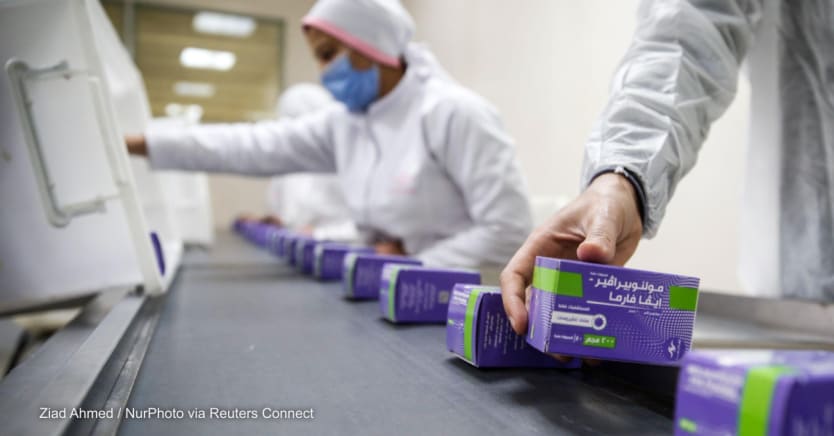
The Medicines Patent Pool, or MPP, has signed a licensing agreement for a new COVID-19 oral antiviral pill.
The organization, which engages with companies to negotiate cheaper access to treatments, will now be able to grant sublicenses to generic manufacturers interested in manufacturing and supplying the investigational COVID-19 antiviral pill, ensitrelvir.
Ensitrelvir is jointly developed by Japanese pharmaceutical company Shionogi and Hokkaido University. It is not yet approved anywhere in the world, and a global Phase 3 trial on its efficacy is currently ongoing.
But according to a recent news release by the company, a Phase 2/3 study conducted in Japan, South Korea, and Vietnam showed that those who took the drug cleared five key symptoms associated with the omicron variant of COVID-19 — stuffy or runny nose, sore throat, cough, feeling hot or feverish, and low energy or tiredness — 24 hours earlier than those who did not take the drug. No serious adverse events or deaths were reported in the study.
This is the third agreement signed by MPP to expand access for a COVID-19 oral antiviral treatment. The first agreement was with Merck Sharp & Dohme, or MSD, last October for molnupiravir, and the second was with Pfizer in November for Paxlovid.
Charles Gore, executive director of MPP, wrote in an email to Devex that the three agreements have the same objective — “enhancing access to potentially important COVID-19 treatments in a large number of low- and middle-income countries.”
However, ensitrelvir, if approved, has some advantages over others. As a once-a-day pill taken for five days, it’s relatively easier to take and could help patients adhere better to treatment. It also doesn’t have to be taken in combination with another pill. In comparison, the treatment regimen for molnupiravir requires four tablets every 12 hours, while the treatment regimen for Paxlovid includes three tablets that include a combination of nirmatrelvir and ritonavir.
The deal with Shionogi is also more expansive — covering “117 countries, which includes an additional 23 countries compared to the Pfizer licence agreement for nirmatrelvir (which covered 95 countries) and 13 additional countries compared to MSD,” Gore said.
Gore said that interested manufacturers can now submit an expression of interest to MPP until Nov. 26. MPP expects the selection of sublicensees to take place soon after.
Generic manufacturers will need to secure approvals from stringent regulatory authorities or a WHO prequalification to be able to market the drug, including for procurement by international organizations such as the Global Fund to Fight AIDS, Tuberculosis and Malaria. Shionogi is currently working with the World Health Organization regarding the drug’s assessment, Gore said.
“If authorised or approved, ensitrelvir could be another important tool to address the current pandemic and could benefit millions of people,” he said, adding that the first generic supplies
“could happen relatively quickly since accelerated review and approvals are expected in [a] pandemic situation.”
But that still could take months, or even a year. At present, generic versions of Paxlovid are still not available, although a generic version developed by Indian-based manufacturer Hetero Labs is now under assessment by WHO for prequalification. Gore said 25 other generic companies are developing the product, and that the first generic version should be available by the end of the year.

More reading:
► Why Paxlovid is still not available in many LMICs


